Ever feel like your brain’s getting bombarded with too much information, and not all of it makes sense? You’re not alone. These days, everyone’s wading through a nonstop flood of opinions, facts, and half-truths. The tool that helps you stay afloat. Critical thinking. It’s not fancy or flashy, but it’s what helps you cut through the noise.
So, what exactly is critical thinking? It’s not about being a skeptic all the time, and it’s definitely not about knowing every fact under the sun. Thinking clearly and critically is more about how you think, how you question, evaluate, and make decisions based on reason instead of impulse. It’s the difference between accepting what someone tells you and actually examining whether it makes sense.
Why bother? Because in a world where misinformation spreads faster than facts, critical thinking gives you the tools to make better decisions, solve problems more effectively, and spot BS from a mile away. Basically, it helps you become a more informed, resilient person in this bewildering 21st century.
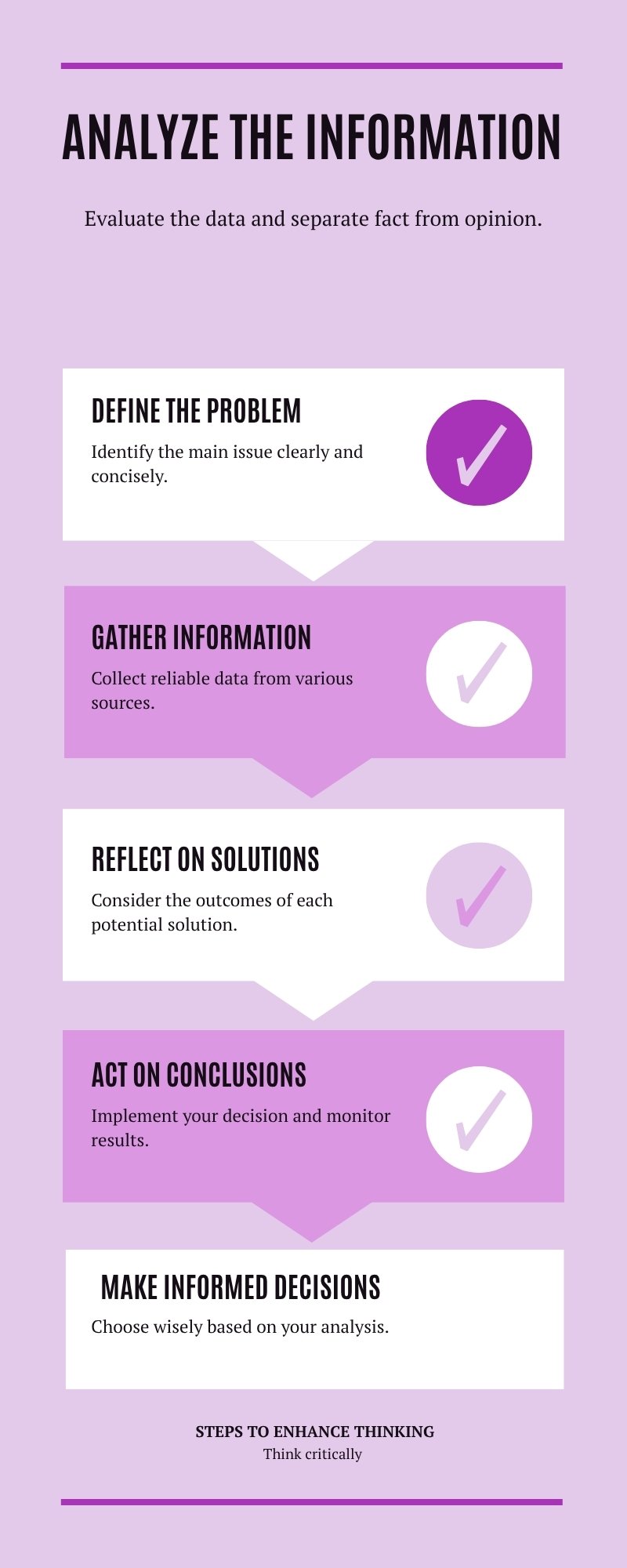
The Essential Skills: What Critical Thinkers Actually Do
Here’s what critical thinking looks like in practice:
Ask Better Questions: Don’t just absorb information. Interrogate it. Ask “why?”, “how do you know?”, and “says who?” Look for evidence. Demand justification. Think about that time you read a headline that turned out to be totally misleading when you dug deeper.
Think Like a Detective: Break down complex information piece by piece. Identify the main claims, trace them back to their sources, and check if those sources are reliable. A peer-reviewed study carries more weight than a random tweet, but even studies deserve scrutiny.
Avoid Mental Traps: Use logic to spot inconsistencies and sidestep common thinking mistakes, like jumping to conclusions or assuming correlation means causation.
See Other Viewpoints: Be genuinely open to considering perspectives that differ from your own, even ones that challenge beliefs you hold dear. Others might have valid points, even if you disagree with them.
Work Through Problems, Not Around Them: Use logic and reasoning to break problems into smaller parts, weigh pros and cons, and pick the best solution from your options.
Check Yourself (Seriously): Examine your own assumptions and biases. We all have them. Critical thinking means being self-aware enough to recognize when your own perspective might be limited or wrong.
Where This All Started: A Quick History
Socrates and the Power of Questions Socrates didn’t give people answers. He asked questions. A lot of them. And he expected good answers in return. That’s the root of critical thinking: don’t just accept something because someone said it. His famous method of questioning claims without solid reasoning basically immortalized the phrase “prove it.”
The Renaissance: Shaking Things Up This era was all about challenging the status quo. Thinkers like Thomas More questioned everything from religion to politics. Later, Francis Bacon and René Descartes pushed for more systematic, rigorous thinking. Their message? Question everything, even yourself.
From Philosophy to Everyday Skill John Dewey helped bring critical thinking into education, emphasizing that you need actual knowledge as a foundation for good reasoning. Without knowing stuff, critical thinking becomes an empty exercise. It was around this time that critical thinking moved from being a purely philosophical concept to something schools and employers actively wanted.
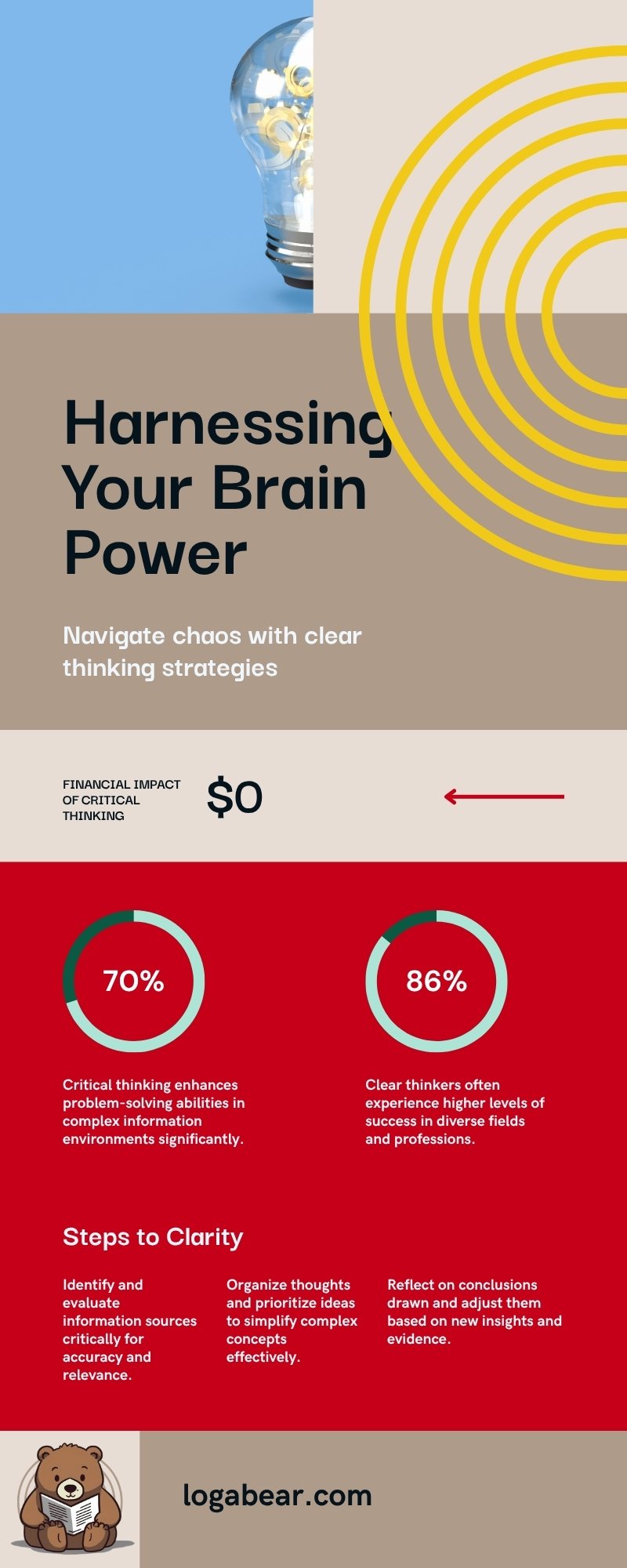
Critical Thinking Today: Wanted But Endangered
Everyone Wants It Universities and employers constantly talk about how important critical thinking is. “Analytical thinking” consistently ranks as one of the most sought-after skills globally, beating out even technical know-how.
But We’re Drowning in Bad Info Our digital world is a minefield of questionable data. Social media rewards hot takes, not thoughtful ones. Emotional posts spread faster than fact-checked ones. In this environment, critical thinking is your best defense against getting swept up in misinformation.
Schools Aren’t Really Teaching It Here’s the weird part: even though everyone says critical thinking is crucial, a lot of teachers never actually learned how to teach it. Traditional lectures and memorization still dominate many classrooms. We’re still telling students what to think instead of how to think.
Public Discourse Is a Mess Social media echo chambers, tribal thinking, and the speed at which false information spreads all work against rational discussion. Critical thinking is fighting an uphill battle in the attention economy.
The Ongoing Debates
Despite all the hype, there’s still plenty of disagreement about critical thinking:
What Is It, Really? There’s no single agreed-upon definition. Is it a general skill that works everywhere, or does it change depending on whether you’re doing science versus analyzing literature?
Knowledge vs. Process Do you need to know a lot of facts before you can think critically? Or can you learn the thinking process first? Most experts say you need both. It’s hard to think critically about something you know nothing about.
The Teacher Problem Even though we know critical thinking matters, plenty of educators never really learn how to teach it. That’s a big part of why students graduate without these skills.
Can You Be Too Critical? Some argue that excessive criticism can actually hurt understanding or make people overly cynical. Where’s the line between healthy skepticism and destructive doubt?
It’s Uncomfortable Let’s be honest, questioning your own beliefs is hard. Our egos resist challenges to our sense of being “right.” That’s part of why critical thinking doesn’t come naturally to most of us.
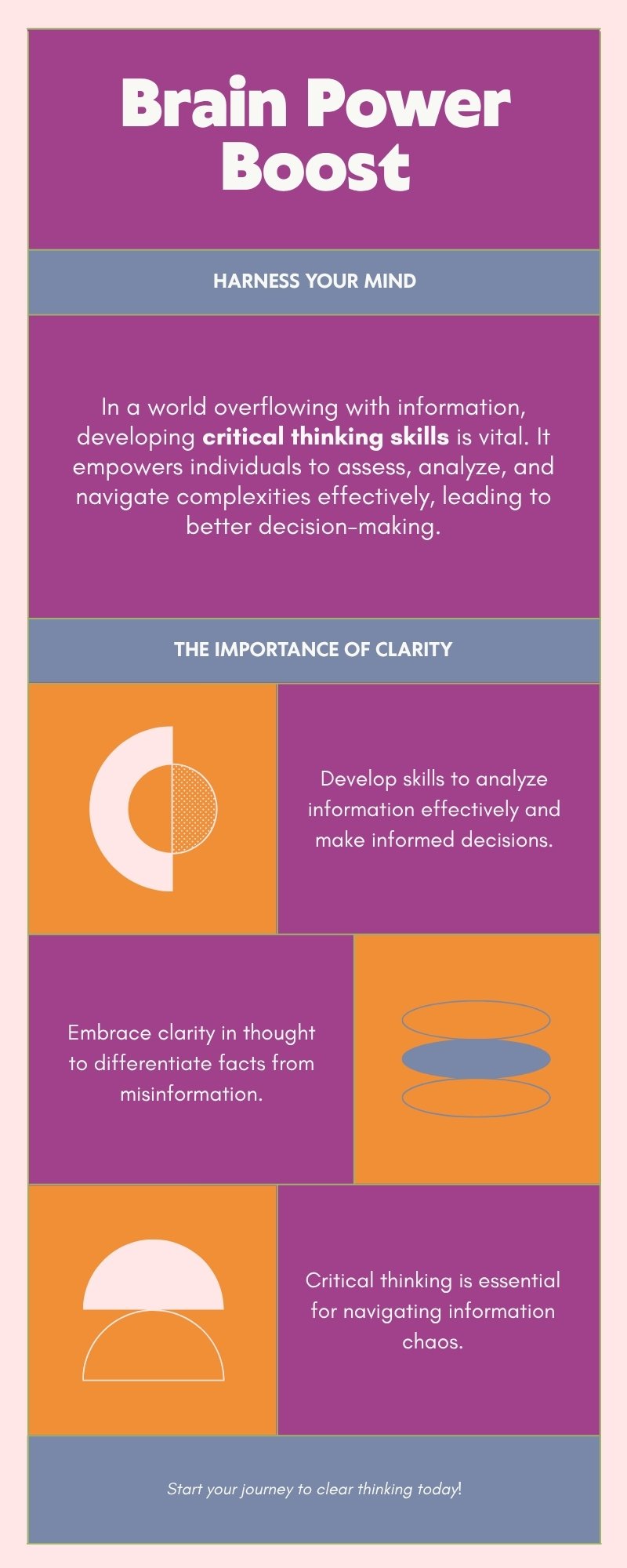
The Future: AI, Algorithms, and Human Brains
AI presents both opportunities and challenges for critical thinking:
The Risks As AI gets better at routine reasoning tasks, we might become lazy and let machines do our thinking for us. Plus, AI systems aren’t neutral. They can reflect the biases of their creators or perpetuate existing inequalities.
What Humans Still Do Best AI can process information faster than we can, but humans excel at ethical judgment, creative thinking, and seeing connections across different fields. These uniquely human abilities will become more valuable, not less.
Staying Sharp We need to learn how to work with AI without becoming dependent on it. That means staying curious, asking good questions, and maintaining our ability to think independently.
Critical thinking will be essential for navigating an increasingly complex information landscape. It’s our best tool for distinguishing reliable information from manipulation and making good decisions in a world where the stakes keep getting higher.
Start Where You Are
You don’t need to be a philosopher to think critically, just curious, honest, and willing to slow down and really consider things. Start small. Question something today. Check a source. Ask “how do they know that?” Consider a viewpoint you usually dismiss.
Your brain is incredibly powerful, but like any tool, it works better when you know how to use it well. In a world full of noise, clear thinking isn’t just helpful, it’s essential!
Sources
- psychologytoday.com
- iadb.org
- wikipedia.org
- criticalthinking.org
- criticalthinking.org
- okstate.edu
- frameworkgarage.com
- utc.edu
- criticalthinking.com
- wikipedia.org
- criticalthinking.org
- hku.hk
- stratogenlabs.com
- criticalthinkingsecrets.com
- reddit.com
- kevindelaplante.com
- iienstitu.com
- slideshare.net
- medium.com
- hku.hk
- ekyaschools.com
- scholarexpress.net
- researchgate.net
- neliti.com
- iadb.org
- unimelb.edu.au
- criticalthinking.org
- medium.com
- reboot-foundation.org
- merriam-webster.com
- vocabulary.com
- britannica.com
- wikipedia.org
- justia.com
- wikipedia.org
- britannica.com
- oxfordlearnersdictionaries.com
- dictionary.com
- collinsdictionary.com
- merriam-webster.com
- wikipedia.org
- cambridge.org
- americandebateleague.org
- britannica.com
- criticalthinking.org
- wikipedia.org
- louisville.edu
- unca.edu
- monash.edu
- ey.com
- neueda.com
- forbes.com
- mckinsey.com
- thousense.ai
- centraltest.com
- itb-academic-tests.org
- mdpi.com
- futuresplatform.com
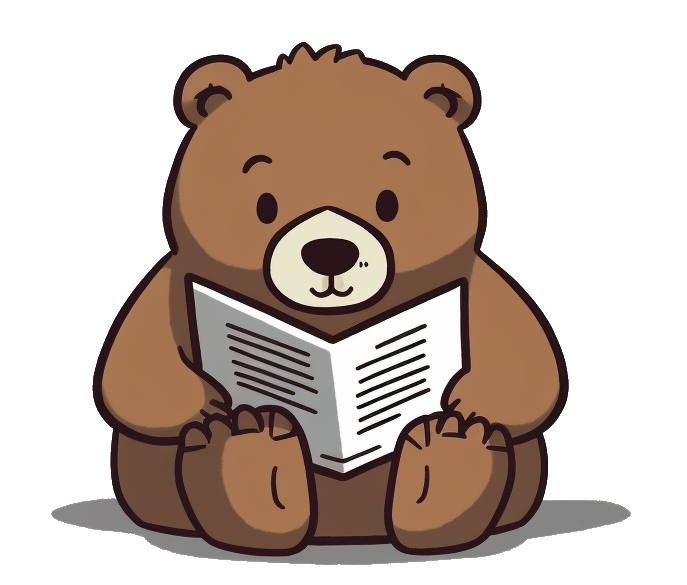
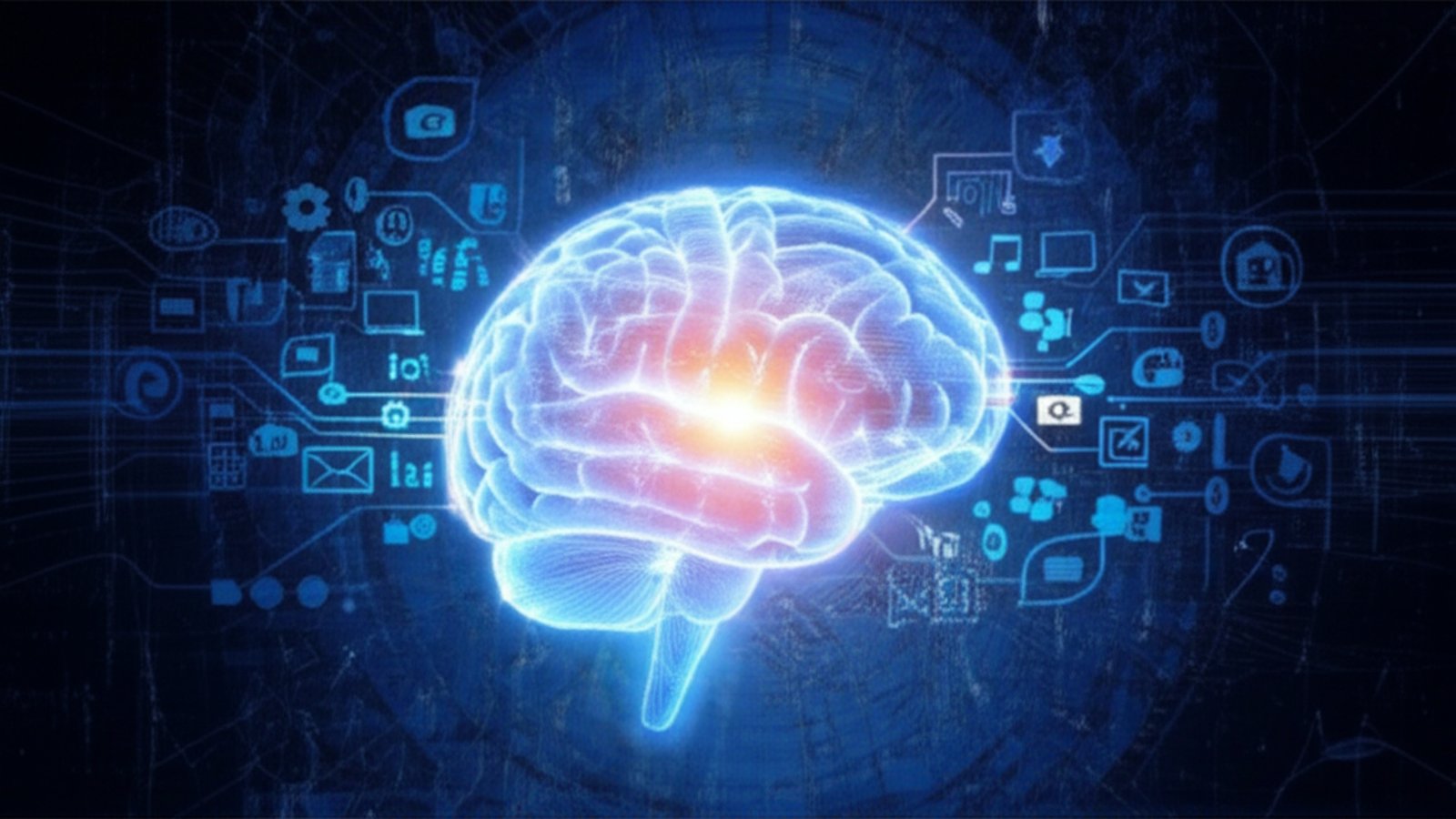
Leave a Reply